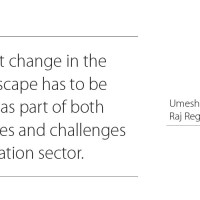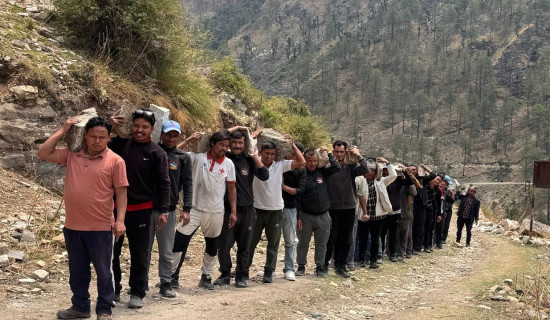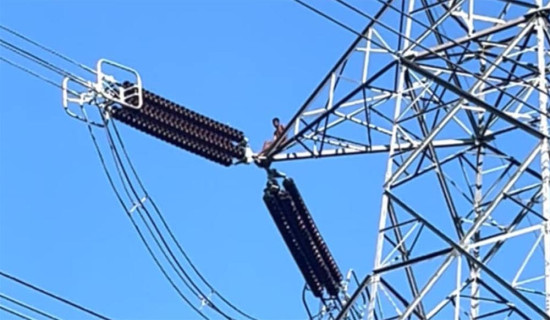- Thursday, 26 June 2025
Masthead Of Media Truth
News is getting excessively expensive when it comes to sifting facts from fiction. Verifying information exacts extra time, cross-checking with channels of opposing persuasions and individual interests. A constant suspect, it is also making people doubt about content veracity. The dragnet of doubts closes in as people talk of fighting disinformation. Flouting European Union laws, France banned TikTok in its territory of New Caledonia in May 2024, when riots broke out and at least seven were killed. Kanaks were against the new proposed law that allowed those who migrated after 1998 to vote in election.
French government explained: When things go out of hand, ban has to be applied. By the same yardstick, the riots in India’s Manipur state in 2023 would justify stringent curbs on the media. But the mainstream media in the West dwelt upon India’s north-eastern state’s turmoil in great deal criticising restrictions on the violence-ridden state. That might explain why media literate Americans and Europeans increasingly distrust news outlets. Barely 45 per cent of their populations consider the mainstream media reliable.
Independent media and professional media are not synonymous. Independence does not necessarily denote professionally competent and non-partisan institution. An independent news outlet can choose to be professionally impartial in its approach to information gathering, investigation of significant clues and degree of presentation. On the other hand, it might wilt under economic and political pressures.
Spade’s a spade
Someone must cry out for all to summon their confidence and turn vocally caring and sharing empathy with members of the much-vaunted sector whose role is often extolled as the Fourth Estate. Inspired by the Danish author Hans Christian Anderson’s “The Emperor’s New Clothes” in the 1830s, this scribe likes to cry out: “But journalists and other staff members at quite a few leading media houses have not been paid for as long as seven months.”
The irony is that the watchdog of society has hardly anyone to bring the issue for a national debate at parliament or public forums. It is yet to summon courage to call a spade a spade, that is, the delay in salary payments for not three months but frustratingly longer. This is a disconcerting development that has welled up in the last four years.
About half of the journalists in Nepal are widely believed to have never drawn mandatory minimum salary, which is close to the pay packet designated for a government help who stands at the lowest rung of hierarchy. Manipulations have flouted regulatory stipulations and deprived news gatherers of monthly pay packets that could barely compete with even the lowest employed in government service.
In Nepal, more than 12,000 journalists are estimated to be affiliated with the Federation of Nepalese Journalists (FNJ), the largest umbrella body of its kind. In fact, the number is equivalent to the total number of journalists registered in Pakistan, a country whose population is seven times that of Nepal’s. There are thousands of others who are not FNJ members but most of them are affiliated with one or the other political parties.
Heartbreaking
News room staff members and district units cannot say with confidence when their next pay cheque will arrive and how much it will clear the backlog of several months. This scribe is personally aware of journalists who confided during the Dashain and Tihar festivals last autumn that they had not been paid for more than three months. Media managements’ promise of clearing the pay backlog on the eve of the Dashain festival ended with the payment of one or two months’ salaries. This still left the staff members with substantial salary backlogs.
Reporting for work on time and fulfilling the designated assignments day in and day out but moving around with virtually empty wallet is a heartbreaking story that, sadly, goes unreported in the press itself. Many journalists are surviving on credits at the groceries while their landlords greet them with grim faces. The situation underscores the pathetic plight of the hands that work but are not paid for. It is doubtful the situation on such staggering scale exists anywhere in Asia. Would the media ignore a similar condition infecting any other sector, including other non-media private business groups or even private homes?
The narrative on the missing pay cheques is not to belittle any individual or institution but to appeal for candid discourse at civil society level and at institutional levels of the elective variety, including the all-powerful parliament. My heart goes to the underpaid, unpaid, overlooked and thus humiliated. The dilemma is one of belling the cat for justice against the culprits that get away with not paying for the services they acquire.
Urgency called for
Mere government dole-outs will not do in addressing the problem effectively. Local, provincial and federal governments have provided incentives of various types to particularly small press groups. But that offers no enduring solution to the conditions of a sector whose contributions to bringing about political changes are regularly commended by leaders from across the national spectrum.
Too many channels with too many claimants as journalists without the required resources to sustain minimum professional health and quality journalism will not work. It will only invite a debilitating disease to a sector with the essential potential of standing as a non-partisan, all-embracing professional public platform for disseminating news and airing views echoing the diverse cross-section of the targeted community.
Regular pay complying with the modest sum fixed as minimum wage has become a luxury only few of the large number of news staff members are entertained to. And this is happening in a country whose constitution is the most explicitly liberal for free speech and “full-fledged press freedom”. The Preamble of the Constitution accepts news outlets as a vital asset. Nowhere does a constitution enshrine such a provision.
A high-level commission formed to make a thorough review of the press conditions drew up a list of recommendations on how to address the media landscape without compromising professional independence and dignity.
(Professor Kharel specialises in political communication.)

















